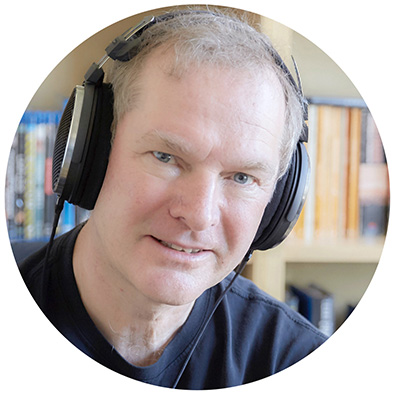
When disciplinary titles simply don’t hack it any more!
Last week I was interviewed by a journalist writing for the Wall Street Journal’s CIO Journal about Chief Information Officers and ethics. As is usual with these conversations, one of their parting questions was “so how should I refer to you?”
I’ve done a lot of interviews, and I always stumble over this question. The trouble is, I dabble in so many areas that I’m never quite sure how to describe myself.
I ended up going with the rather bland “Professor and Associate Dean,” but I could tell that the journalist wanted more — something they could hang my expertise on. “Professor of Digital Ethics” maybe or “Professor of Responsible Infotech.”
The trouble is, my institution tends to avoid such titles — we’re professors, but generally we don’t have titles indicating that we’re professors of anything specific. This, I suspect, is part of ASU’s ambitions to move beyond archaic demarcations of expertise. But the “professor of what?” issue goes much deeper for me (and, I suspect, many of my colleagues) in that I have no ideas how I would describe myself if I did have a fancier title to bandy about!
Some time ago (when I clearly had too much time on my hands) I thought it would be amusing to try and pin this down by pushing all of my papers and articles through a fancy algorithm, and seeing what it came up with. But the only thing I had to hand was a word cloud generator, so this is what I used instead.
This is what I got:

Sadly, the word cloud wasn’t much help in capturing everything I do in a short, sharp, and above all, understandable, title! What’s worse is that it’s heavily biased toward stuff I’ve done in the past, rather than what I’m interested in now — it turns out that churning past publications through a word cloud generator isn’t that good at capturing who you are!
The trouble is, like many of my peers, 30+ years of working across boundaries has led to me being interested in challenges and issues that are so diverse they refuse to be stove-piped into a single discipline.
Of course, this is where words like “multidisciplinary,” “interdisciplinary,” or even “transdisciplinary” often come into play. But even these don’t work that well.
But then, in a conversation this past week, I think I found a solution! I was talking with someone who finds themselves similarly disciplinarily challenged, and they commented that, because of this, they refer to themselves as “undisciplined!”
I must confess that I rather like this. It’s a bit of a wicked play on words, as being undisciplined is usually seen as a bad thing. And yet “undisciplined” can also be taken to mean “not being a part of an established branch of knowledge” or “not obeying established rules of behavior” — both of which fit me pretty well!
And so, I’m thinking that maybe next time I’m asked for my title, it should be “Andrew Maynard, Professor and Undisciplinarian,” or even “Professor of Undisciplined Studies.” Or even “Andrew Maynard, Undisciplinary Academic.”
Of course, it may just add to the confusion, but at least I’d have some fun along the way.
And that WSJ article? I suspect that the lack of a professional title to hook my expertise on will end up with me being relegated to a background source, which is fine — it’s the insights I can bring to a piece that are important, not the name. But maybe one day you’ll see an article with a juicy quote from Andrew Maynard, Undisciplined Academic!
Subscribe to Andrew’s Newsletter for regular updates, behind the scenes insights, exclusive content, and more …
